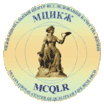|
R.M. Kaplan, E.J. Groessl, N. Sengupta, W.J. Sieber, T.G. Ganiats
Comparison of Measured Utility Scores and Imputed Scores From the SF-36 in Patients With Rheumatoid Arthritis
The aim of the study was to evaluate four methods for imputing utility-based outcomes from clinical trial data measured using the Medical Outcomes Study 36-Item Short Form (SF-36).
636 patients who participated in a randomized clinical trial evaluating a new treatment for adults with rheumatoid arthritis (RA) were included in the analysis. Participants completed the SF-36, two versions of the Health Utilities Index (HUI2 and HUI3), the EuroQol EQ-5D, and the Health Assessment Questionnaire (HAQ).
SF-36 scores were transformed to utility-based scores using four methods developed independently by Fryback, Nichol, and Brazier. Imputed utility-based score estimates are significantly correlated with measured utility outcomes. However, the imputed measures had more constrained variability, showed poorer correspondence to the clinical effect, and predicted less than half of the variance in actual utility-based outcomes.
Therefore, directly assessed, not imputed, utility-based measures should continue to be favored for cost-effectiveness analysis.
|





